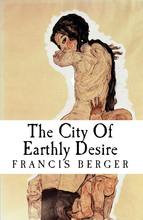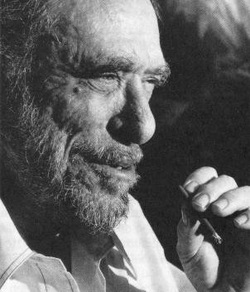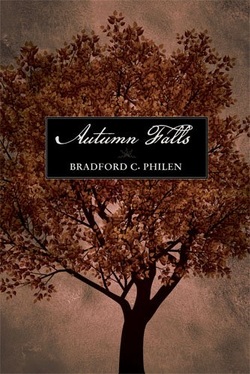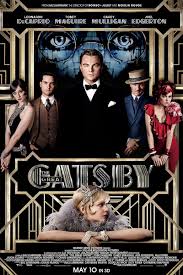
The giveaway on Goodreads was a real success.
Congratulations to C.L. from Windsor, Ontario for winning a free copy of the novel.
Thank you to the 1,112 readers who took the time to enter the giveaway.
 The giveaway on Goodreads was a real success. Congratulations to C.L. from Windsor, Ontario for winning a free copy of the novel. Thank you to the 1,112 readers who took the time to enter the giveaway.
0 Comments
 When people find out I like to write and that I have a book out on the market, one of the first questions they usually ask is - "How's the book doing? Is it selling?" I usually respond to this question by stating that the book is doing well, but it is not selling all that much. This usually leads to a discussion about the publishing industry, marketing, success-stories, etc. In the end, I usually state that I would be happy if the book became a "success" one day, but in my mind the book is already successful. When all is said and done, the notion of "success" in publishing is not and has never been my primary motivation for writing. Now that's a pretty bold statement - but it is only bold if it is authentic. Unfortunately, stating that one writes simply for the love of writing has also become a terrifyingly trite and contagious cliche. I can't begin to tell you how many times I've seen writers express the same sentiment in their author blogs, blog tours, author interviews, etc. It's a noble sentiment isn't it? It's also a good lifeboat to cling to if your writing never goes anywhere in the world. Now, I personally know a few writers who are being honest when they claim they write simply for the passion of writing. Like me, they haven't reached any notable level of name recognition or financial gain; nevertheless, they plug away at their stuff all the same happy to have the chance to produce work and get out there. And I'll give the benefit of doubt to a few more writers I don't know who surely do it "for the love it" - writers who write stories about people and places that will never capture the attention of the masses spring to mind. But I find it impossible to believe that success and fame in publishing are not the primary motivations behind most writing being produced today. This especially holds true for all the mimickers and gimmickers that chase the latest fads and trends hoping their version of the latest sado-masochistic, love-sick zombie-vampire saga will be the next Twilight or Fifty Shades of Grey. When those guys tell me they do it for the love of writing, I can't help but snicker just a little. But hey, who am I to judge? Regardless, I believe there are writers, honest writers who do write because they are driven to write. Though I am certain most would welcome a little extra cash and some of the other perks that come with "success", I have a feeling most will continue to write even if they never attain those things. The question is - why? Why would a person write if they didn't harbor dreams of hitting it big? The answer to that is both simple and profound. Writers who write for the love of writing experience an entirely different realm of existence when they sit down to put their thoughts to paper. To writers of that caliber, the act of creation is a far more important matter than the dissemination and eventual success or failure of their creation. They write primarily for themselves, these writers. For them, writing is more than mere careerism and the acquisition of a few petty laurels. For them, writing is survival - the essence of life itself. Charles Bukowski is a good example of a writer of this kind. My favorite Bukowski poems are the ones that deal with his creative process - the sitting down at the desk late at night, the turning on of the classical music on the radio, the opening of a bottle of wine, the lighting of a cigarette, the kissing of the typewriter, and finally, the act of creation itself. The sheer joy, the absolute ecstasy Bukowski expresses when he describes how he crafted his poems is almost religious in nature. Of course, Bukowski eventually went on to attain a high level of "success" in his lifetime and his poems are still in print all over the world. Oddly enough, his descriptions of his success in publishing never rival his descriptions of the act of writing itself. In fact, he has an almost dismissive view of his published work. It is of secondary importance to him, as displayed in the quote below: 'But, bottom line, when I write, it's for me. (He draws a deep drag off his cigarette.) It's like this. The "drag" is for me, the ash is for the tray... that's publication.' I wonder how many writers who claim to write for the love of writing truly feel the same way?  Now more than ever fiction has become little more than a form escape - one need only glance at the bestseller lists or current offerings on any book website to see that the only reason the majority of the reading public reads at all is to be entertained. This in itself is not a bad thing, but a closer inspection of bestseller lists and book sites will tell you that the reading public's general taste in fiction rarely rises above the teenage/young/adult/romance/horror/fantasy/erotica genres. Once again, this is not necessarily a bad thing, but it does pose a problem for readers whose taste in literature rises above the superabundant fluff that populates bestseller lists. Where does one find good, serious fiction that entertains, but also explores and examines the human condition while simultaneously crafting the written word in a way that is both clear and aesthetically pleasing? Bradford Philen's Autumn Falls is a good place to start. Through his protagonist Keith Baker, Philen invites the reader to ponder many intriguing themes: the choices one makes in life, the lingering influence of the past, the mystery and banality of love, and the power of endurance in a world that often offers little more than suffering and indifference in return. Though it is set in the southern United States, the story transcends its setting and taps into a level of emotional universality that makes it accessible to all. In many ways, the book fulfills Aristotle's theory of art serving as a mirror through which we are able to recognize our own characters and natures. As I read the story, I stopped on several occasions and thought, "Ah, this is what it means to be human. These are the obstacles we all must face in some form or other." Written in a clear, crisp style, the narrative flows effortlessly from scene to scene and part to part. Philen has a gift for dialogue; the conversations between characters are both memorable and authentic. In a world drowning in comic book prose, Autumn Falls exists as one of those increasingly rare kinds of novels - a novel about real people and real problems. I highly recommend it to anyone looking for a story that allows them to touch the earth. Link to the novel: http://www.amazon.com/gp/product/159715072X/ref=cm_cr_mts_prod_img Goodreads Book GiveawayThe City of Earthly Desireby Francis BergerGiveaway ends June 30, 2013. See the giveaway details at Goodreads.  I have to confess, I don't watch many movies anymore, either at the cinema or at home. If I were to guess, I would say I watch maybe four or five films a year, and even that might be pushing it. I don't know exactly when I stopped watching movies on a regular basis, but I think it started during the two years I spent living in Budapest, Hungary from 2001 to 2003. While I was in Budapest, I much preferred to spend my free time absorbing the aesthetic and cultural treasures of the city rather than in a darkened theater munching popcorn or parked before a television screen watching a DVD. After I returned to North America, I discovered not watching movies on a regular basis had become a habit. Though I don't harbor a Caulfieldian loathing for motion pictures in general, I don't watch films regularly for pretty much the same reason I don't eat candy regularly – though delightful on rare occasions, the idea of consuming either on a regular basis no longer appeals to me. So when do I watch movies and what sort of films peak my interest enough to sit down and watch them? I have no specific answer for this, but one weak point for me are films based on novels, especially novels I love; however, seeing films based on books are, and have always been, a real hit-or-miss experience for me. When I leave the theater, I am either satisfied by a film's attempt to capture the narrative, (Fight Club, No Country For Old Men) or I am utterly bewildered by the thought that the director/producer/actors/etc., had not read the novel before they began working on their film adaptation of it (Alice in Wonderland, the 1998 version of Great Expectations). The day I learned Baz Luhrmann had released his adaptation of The Great Gatsby, I was overcome with both joy and trepidation. I found the 1974 version of Gatsby, the Jack Clayton version starring Robert Redford that has been forced upon every person who has ever taken a high school English class in North America in the past thirty years, mediocre at best, so I was thrilled to learn another adaptation of the novel had been filmed, but I was wary of Baz Luhrmann's direction. Luhrmann's adaptation of Romeo and Juliet is another regular feature of most high school English classes – I have shown it in my English classes as a supplement to the play on many occasions – and though the loud, whimsical, and colorful rendition of the classic does engage students, it also takes tremendous liberties with the play, some of which begin to transform Shakespeare's original vision into nothing more than a glorified pop music video. The evening I went to the theater to see the latest screen version of Gatsby, I hoped for the best, but feared the worst. My impressions? During the first thirty minutes, I sat in my seat in a state of agitation. Like his Romeo and Juliet, Luhrmann has taken some artistic liberties with his version of Fitzgerald's novel. For example, we encounter Nick in the sanatorium where he is recovering from alcoholism and depression. The doctor prescribes writing therapy and Nick essentially writes the novel in the sanatorium as part of his convalescence. For reasons I'll never understand, Luhrmann chooses to paraphrase the opening of the novel rather than simply allow the original text. Was he afraid today's audiences would not understand the line, Whenever you feel like criticizing any one just remember that all the people in this world haven’t had the advantages that you’ve had? He also skips the immortal line Her voice is full of money which Gatsby uses to describe Daisy toward the end of the narrative. Why that line, which for me is the entire thematic thrust of the narrative captured in six simple words, is omitted, I'll never know. In any event, I found the first few scenes of the film dizzying and perplexing and I could not help but think the movie was going to be nothing more than another one of Luhrmann's extended music videos based loosely based on literature. Nevertheless, after a half-an-hour, a strange transition occurs. I'm not sure if it is because you become acclimatized to the overall style of the movie or whether it is based more on the acting and the visuals, but about a third of the way into the film, Luhrmann brings Fitzgerald's vision of the novel more or less to life. I ended up leaving the theater satisfied. The film was not without its flaws, and I'm certain some purists will absolutely hate it, but in my mind, Luhrmann's The Great Gatsby is a good adaptation of the novel, one I'm sure I'll end up showing to students in my future English classes. |
Blog and Comments
Blog posts tend to be spontaneous, unpolished, first draft entries ranging from the insightful and periodically profound to the poorly-argued and occasionally disparaging. Comments are welcome but moderated. Please use your name or a pseudonym in comments. Emails welcome: f er en c ber g er (at) h otm ail (dot) co m Blogs/Sites I Read
Bruce Charlton's Notions Meeting the Masters From The Narrow Desert Synlogos ✞ Aggregator New World Island New World Island YouTube Steeple Tea Adam Piggott Fourth Gospel Blog The Orthosphere Junior Ganymede Trees and Triads nicholasberdyaev Archives
July 2024
|